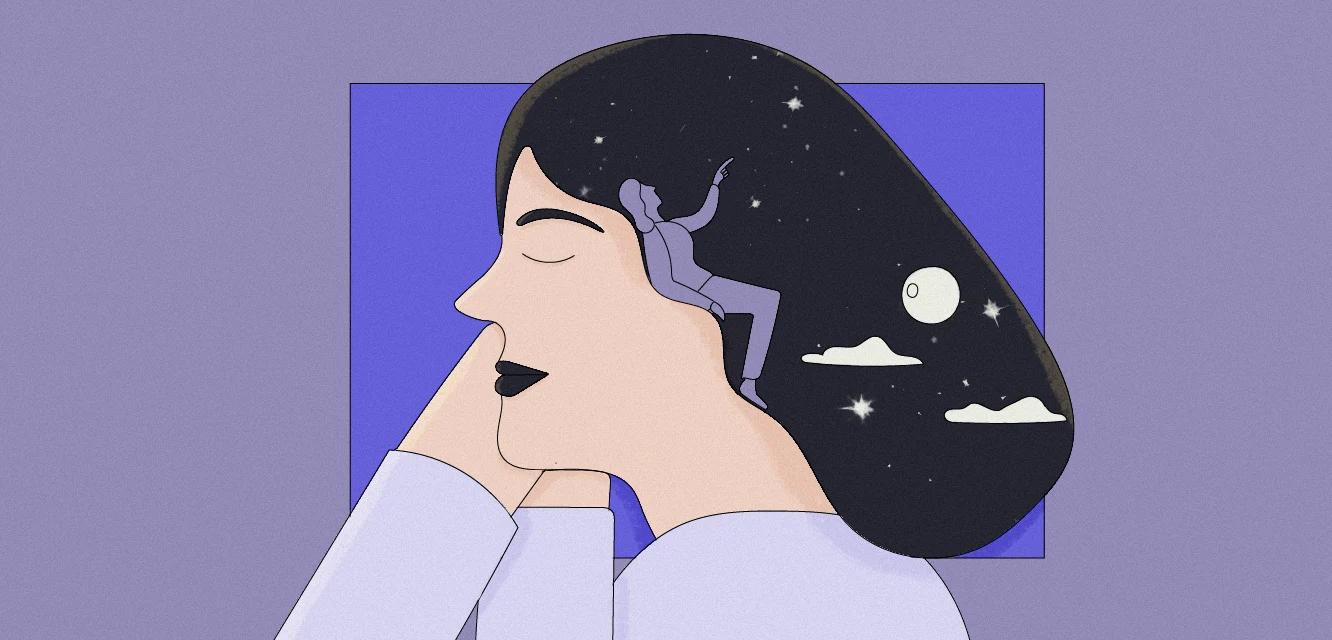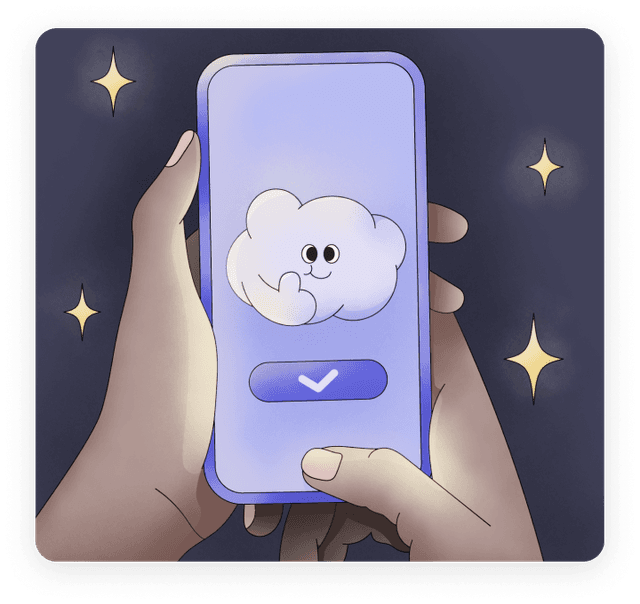
Denys Chumak
19 Jul 2023
How to Analyze a Dream Using Jungian Dream Analysis
1. Introduction to Jungian Dream Analysis
Have you ever wondered about the hidden meanings behind your dreams? Jungian Dream Analysis can provide you with valuable insights into your unconscious mind.
Developed by renowned psychologist Carl Jung, this approach focuses on deciphering symbols, archetypes, and personal experiences within dreams. By examining these elements, we can gain a deeper understanding of our thoughts, emotions, and unresolved issues.
According to a survey, Approximately 51% of participants hold the belief that our dreams serve as a medium through which we manifest and communicate our inner fears and anxieties.
2. Understanding the Basics of Dreams and Their Significance
Dreams have fascinated humans since ancient times. They are a window into our subconscious mind, reflecting our deepest desires, fears, and emotions. Dreams often contain symbols and metaphors that require interpretation.
Through Jungian Dream Analysis, we can unlock the hidden messages within our dreams and gain valuable insights. Understanding our dreams can help us make better decisions, resolve emotional issues, and find a sense of purpose and belonging in our lives.
3. The Role of the Unconscious Mind in Dreaming
The unconscious mind plays a crucial role in dreaming and influences the content of our dreams. It contains repressed memories, unexpressed emotions, and unresolved conflicts. Jungian analysis of dreams emphasizes the exploration of the unconscious through dream interpretation.
By unravelling the symbolism in our dreams, we can access deep-seated emotions and gain clarity on unresolved issues. This process can be transformative, empowering us to heal emotional wounds, find self-acceptance, and make informed choices in our daily lives.
4. Key Concepts in Jungian Dream Analysis
Dreams have long intrigued us with their hidden meanings. Dive into Jung's Dream Interpretation and discover key concepts that unlock the secrets of your subconscious mind.
A. Archetypes: Delving into the Collective Symbols of Dreams
In your dreams, you encounter archetypes, universal symbols that represent fundamental human experiences. They tap into our collective unconscious, revealing themes like the hero, the wise old man, or the nurturing mother.
B. The Persona: Exploring the Masks We Wear in Our Dreams
In dreams, we often wear different masks, presenting ourselves in ways that differ from our conscious identity. The persona represents the social face we show to the world, but beneath it lies a deeper, more authentic self.
C. Shadow Work: Confronting and Integrating the Dark Side of Dreams
Dreams can bring forth our shadow—the hidden, repressed aspects of our personality. Shadow work involves acknowledging and integrating these dark elements, promoting self-acceptance and personal growth.
D. Anima and Animus: Unraveling Male and Female Energies in Dreams
Dreams often depict both masculine and feminine qualities within us, regardless of gender. The anima (in men) and animus (in women) represent these opposing energies, and understanding them brings balance and wholeness.
Also Read: What Does It Mean to Have Dreams About Killing Someone?
5. The Process of Analyzing a Dream Using Jungian Techniques
Let's explore the step-by-step process of analyzing dreams, tailored to those in the United Kingdom who are spiritual, seeking belonging, and have unresolved emotional issues.
A. Keeping a Dream Journal: Recording and Reflecting on Your Dreams
Start by keeping a dream journal beside your bed. As soon as you wake up, jot down every detail you remember. Reflect on the emotions, people, and places in your dreams.
B. Identifying Symbols and Patterns in Your Dream
Look for recurring symbols or patterns in your dreams. These symbols hold personal significance and may represent aspects of your unconscious mind or unresolved emotions.
C. Free Association: Unlocking the Hidden Meanings in Dream Images
Take a specific dream image and let your mind freely associate related thoughts and emotions. This technique can help uncover deeper meanings and connections to your waking life.
D. Active Imagination: Engaging with Dream Figures and Dialogues
Imagine entering your dream again and engaging in a dialogue with dream figures. Ask them questions and let them reveal insights, providing guidance and resolutions to your emotional struggles.
6. Practical Tips for Interpreting and Applying Jungian Dreams Analysis
Now let's explore practical tips for interpreting and applying Jungian dream analysis, empowering you to harness the healing potential of your dreams.
A. Integrating Dream Insights into Your Daily Life
Incorporate dream analysis into your routine by keeping a dream journal. Write down your dreams immediately upon waking, noting any emotions, symbols, or recurring themes. Reflect on your dreams throughout the day, drawing connections between the dream imagery and your waking life experiences. You can also use a dream dictionary.
B. Recognizing the Healing Potential of Dreamwork
Dreams often serve as messengers from our unconscious, highlighting unresolved emotional issues. Pay attention to strong emotions evoked during dreams and explore their underlying causes. Use this self-awareness to embark on a journey of healing and personal growth, addressing the root causes of your emotional challenges.
C. Seeking Professional Guidance for Complex Dreams
Some dreams may be intricate and require expert interpretation. If you encounter complex dreams that leave you puzzled or emotionally overwhelmed, consider seeking the assistance of a professional dream analyst or therapist. Their expertise can provide valuable guidance in understanding the deeper layers of your dreams.
Also Read: What Does It Mean When You Dream About Drowning?
7. Conclusion
In conclusion, Jungian Dreams Analysis offers a powerful tool for individuals who are seeking spiritual growth, struggling with unresolved emotional issues, and longing for a sense of belonging. By delving into the world of dreams and deciphering their hidden meanings, we can tap into our unconscious mind, gain self-awareness, and find guidance in our decision-making processes. Whether you're curious about the mysteries of your dreams or in search of personal transformation, exploring Jungian Dream Analysis can be a profoundly rewarding journey.
Also, discover the meanings behind your dreams with DreamApp, a comprehensive online dream dictionary. Explore a vast database of dream symbols and their interpretations to gain insight into your subconscious mind. Uncover the hidden messages and emotions within your dreams, and embark on a journey of self-discovery and understanding.
8. FAQS
What is Jungian dream analysis?
Jungian dream analysis is an approach to interpreting dreams based on the theories of Carl Jung. It explores symbols, archetypes, and the collective unconscious to gain insights into the dreamer's psyche.
How can I start analyzing my dreams using Jungian methods?
Start by keeping a dream journal, recording your dreams in detail. Look for recurring symbols and themes. Explore the personal and universal meanings behind these symbols to uncover their significance.
What is the role of archetypes in Jungian dream analysis?
Archetypes are universal symbols and themes that exist in the collective unconscious. They represent common human experiences and emotions. Analyzing archetypal elements in dreams helps uncover deeper meanings and patterns.
How can dreams provide insights into my unconscious emotions?
Dreams serve as a window into the unconscious mind, where suppressed emotions and unresolved conflicts reside. Analyzing dream symbols and scenarios can help bring these emotions to the surface for understanding and healing.
Can Jungian dream analysis help with personal growth and self-discovery?
Yes, Jungian dream analysis is a powerful tool for personal growth and self-discovery. It helps individuals understand their unconscious desires, fears, and motivations, leading to increased self-awareness and potential for transformation.
Did you have an unusual dream with this symbol?
Let's analyze this dream with our expert!
At least five words, please.

Your dreams are completely private
Take control of your dream emotions in the free mobile app



The most recent users' dreams
Go to the user dreams page
Dream App
Free dream interpretations

(1,213)











